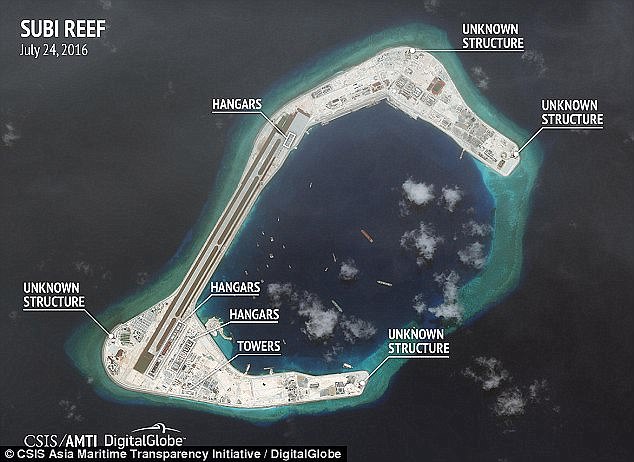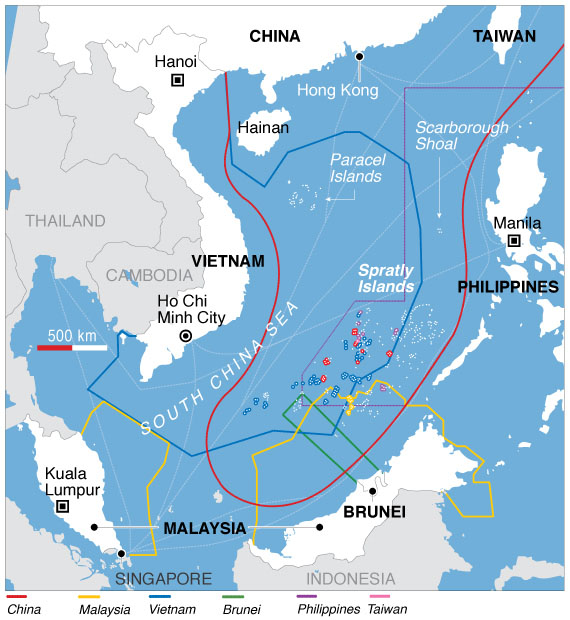
China has completed three military bases on artificial islands in the South China Sea, according to a US think tank which monitors activity in the disputed waters.
The Asia Maritime Transparency Initiative (AMTI) said the work on Fiery Cross, Subi and Mischief Reefs in the Spratly Islands include naval, air, radar and defensive facilities.
Greg Poling, director of AMTI, said satellite images taken this month showed radar antennas on Fiery Cross and Subi. “So look for deployments in the near future,” he added.
The islands are hundreds of miles from the Chinese mainland and are also claimed by Vietnam, the Philippines and Malaysia.

China has denied claims it is militarising the South China Sea but last week Premier Li Keqiang said defence equipment had been built on islands to maintain “freedom of navigation”.
AMTI said China’s three air bases in the Spratlys and another on Woody Island in the Paracel chain further north would allow its military aircraft to dominate the waters.
AMTI also said China had installed HQ-9 surface-to-air missiles at Woody Island more than a year ago and had deployed anti-ship cruise missiles there.
It had also constructed hardened shelters with retractable roofs for mobile missile launchers at Fiery Cross, Subi and Mischief and enough hangars at Fiery Cross for 24 combat aircraft and three larger planes, including bombers.
Commenting on the report, a senior Philippine defence official said the construction China has carried out on the islands “belies a clearly military purpose contrary to Chinese public pronouncements that it is civilian in nature”.
That raises the likelihood of further militarisation and restrictions on air and sea traffic, posing a “clear and present danger to the present regional security balance,” said the official, speaking on condition of anonymity.
As we reported last month, US officials said China had finished building structures on Subi, Mischief and Fiery Cross that appeared designed to house long-range surface-to-air missiles.
In his Senate confirmation hearing in January, new US Secretary of State Rex Tillerson angered China by saying it should be denied access to its seven artificial islands in the South China Sea.
In recent years, the US has conducted a series of what it calls ‘freedom-of-navigation operations’ in the South China Sea, raising tensions with Beijing. China claims this is the equivalent of Beijing trying to tell the Americans what to do in the Gulf of Mexico.

Comments are closed.